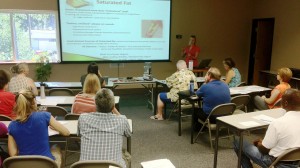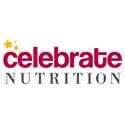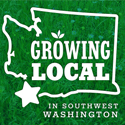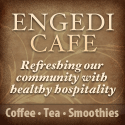With all preventable diseases such as type 2 diabetes, the most influential factor in both the cause and prevention of high LDL cholesterol is the food we eat. This is great news because it means that we are in the driver’s seat with the freedom to choose the future of our own health rather than feeling like a victim to our S.A.D. culture—the standard American diet.
The Centers for Disease Control and Prevention estimate that at least 1 in 6 Americans have high cholesterol, placing them at high risk for heart disease, the leading cause of a very preventable death, in the United States. What most doctors will not tell you is that cholesterol lowering medications have only a 30% improvement rate and pose risky side effects, have the potential to lower HDL (healthy) cholesterol, and aim at relieving symptoms rather than addressing the cause. In other words, the majority of medications provide a false sense of security.
Eating nutrient-rich whole foods is the greatest way to naturally ensure healthy cholesterol levels, while also gaining the benefits of a healthy body weight, a powerful immune system, and low blood pressure, inflammation, and blood glucose.
Which will you choose? Choose to receive the gift of health by putting into action my top 8 strategies for eating your way to healthy cholesterol levels!
1. Avoid Trans-fats Like a Plague—these fats are the worst of the worst. Not only do they raise your LDL cholesterol but they also lower your HDL cholesterol. Read ingredient labels and avoid all foods with the words “hydrogenated” “partially” or “trans-fats.”
#1 Sources: liquid/powdered coffee creamer, fake peanut butter, packaged & processed foods, especially bakery items like crackers/cookies.
2. Limit Animal Sources of Saturated Fat –literally rotten, oxidized plaque. Second to avoiding all trans-fats, saturated fats from animals are the greatest contributor of LDL cholesterol. Contrary to public belief, eating high cholesterol food, is insignificant in raising LDL cholesterol. Eggs and shrimp, for example, are high cholesterol foods but low in saturated fat. Butter and cheese are the primary dietary sources of heart disease, high cholesterol, and high BP in America.
#1 Sources: dairy—butter & cheese, 2% and whole milk, and meat.
3. High Fiber Foods—fiber binds with cholesterol in the digestive tract, providing a powerful cleansing toothbrush for the colon.
#1 Sources: beans, nuts, seeds, fruit, grains, avocado, greens/veggies (aka-plant-based foods)
4. Ground Flaxseed—ground flaxseed (not the oil) is an exceptional source of fiber, plant sterols/lignins for disease prevention, and omega-3 fatty acids with outstanding effects in reducing LDL and raising HDL cholesterol. Enjoy 2-3 Tbsp. ground flaxseed daily in smoothies, baked goods, sprinkled on yogurt, etc. Grind them yourself in a coffee grinder and store in the refrigerator or freezer to protect the precious oils.
5. Monounsaturated Fats—avocado, organic extra virgin olive oil, walnuts, and nuts/seeds raise HDL cholesterol. As all oil is void of fiber and contains 120 calories per tablespoon, eating avocados, nuts, and seeds are the best whole foods sources of monounsaturated fats.
6. Fish Oil Supplement—helps to balance a healthy amount of HDL cholesterol, mood, immunity, and lower triglyceride levels in the bloods which cause plaque buildup. A wild fish or low-mercury supplement such as Carlson© brand (lemon flavored) is pleasant tasting and metal-free.
7. Daily Exercise—breaking a sweat produces profound effects in increasing HDL cholesterol while also encouraging a healthy body weight to further ensure protection against LDL production.
8. Nutrient-Rich Whole Foods Lifestyle—learn to love and prefer the world’s healthiest, most nutrient-rich foods! This transformation is the greatest disease-preventing, life-saving and life-giving, alkaline, DNA repairing, cell-nourishing, delicious, energizing influence you can ever make in your health!
*For a most delicious, heart-healthy chocolate mousse recipe and more of Leanne’s nutrient-rich recipes, check out Couv.com’s health link!
Leanne Ernster, 2012.
CelebrateNutrition.com









